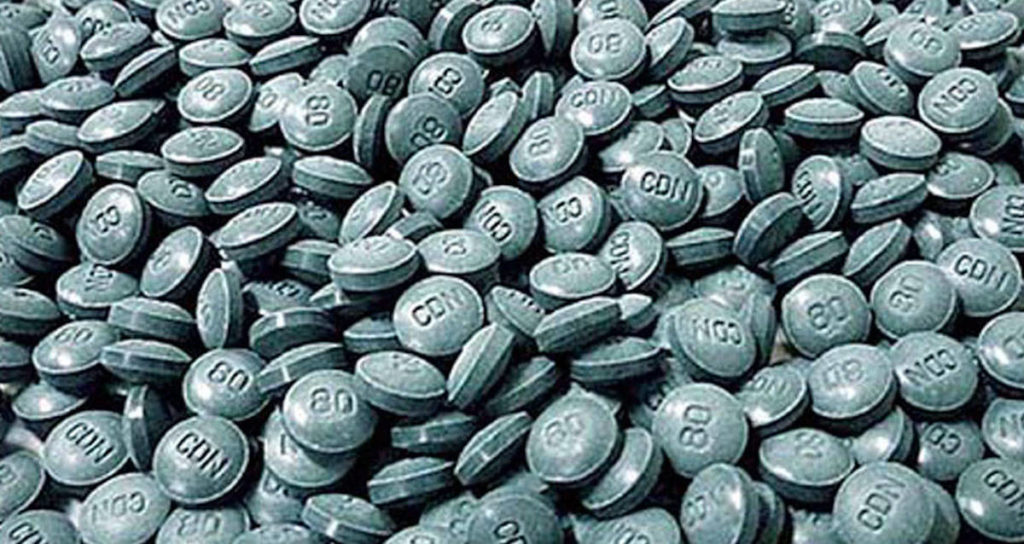Read the latest and greatest from our team
of incredible specialists.

Beach House Recovery Center » Blog » Fentanyl Abuse Signs, Symptoms, Risks to Know About
Fentanyl is a synthetic opioid that is very effective at relieving moderate-to-severe chronic pain. It’s roughly 100 times stronger than morphine, and 50 times stronger than heroin. Although it can be effective when used in a monitored medical setting, there are several illegal versions of the drug available on the street that are even stronger and much more dangerous. Furthermore, many recreational drug users, especially those addicted to heroin, will use fentanyl as a substitute. Given the drug’s potency and the ability to produce it illegally, the risks for abuse and potential overdose are likely.

Fentanyl abuse is not new; however, just as there’s been an increase in overall opioid use, there’s been an increase in fentanyl abuse in recent years. Since fentanyl is so potent, abuse poses a high risk for overdose.
Fentanyl abuse often occurs because of the euphoric effects it produces during medical treatment, or due to the availability of stronger versions which produce even greater positive moods when mixed with heroin or cocaine. The drug produces a powerful high, and its attraction is hard to resist.
Those who abuse fentanyl may obtain the drug from illegal laboratories that manufacture it. The type produced in laboratories is usually much more potent than heroin, and it causes significant respiratory distress.
Fentanyl abusers may re-use a discarded a medically-prescribed fentanyl patch that still contains potent amounts of the drug. They take the gel contents from the patch and eat it, place it under the tongue, smoke it, or inject it.
People who buy street heroin or cocaine may not even be aware that fentanyl has been added to the product. Even if they’re taking a reduced dose of heroin or cocaine, the addition of fentanyl makes the drug more potent and more deadly.
The signs that indicate that someone may have a fentanyl abuse issue are very similar to the symptoms associated with those who are abusing heroin or other opioids.
The most serious risks of fentanyl abuse are dependence and death. When someone develops a dependence on the drug, they’ll need more of the drug and a higher dosage of it to feel its effects. Fentanyl is an incredibly potent drug, and an overdose on fentanyl may lead to death if it’s not treated immediately with an antidote like Narcan.
Fentanyl abuse may lead to immune system depression, gastrointestinal problems, and/or increased feelings of sedation. Other risks of fentanyl abuse are similar to the risks imposed by abusing other drugs. These risks include loss of relationships, social withdrawal, personality changes, and lack of motivation.
For those who inject fentanyl using a needle, there’s also an increased risk of various types of infection such as HIV, hepatitis, blood infections, endocarditis.
Individuals abuse fentanyl for a variety of reasons. Social factors, psychological factors, and/or the need to self medicate to relieve physical and/or mental pain may all play a role in use. If you have any suspicion that you or someone you know may be abusing fentanyl, do not hesitate to reach out and seek help. Contact a local physician or a top-rated rehab facility like Beach House to determine the best plan of action for joining a drug treatment program for Fentanyl abuse to help you or a loved one in need.
If you need immediate help or information about fentanyl detox, rehab, and treatments to get free from addiction, you can chat with an addiction expert confidentially 24/7 if you contact Beach House today.
Whether you’re researching for yourself or a loved one, Beach House can help. We understand that this is a serious time in your life and that the treatment center you choose matters. We want you to feel comfortable and empowered to make the right decision for yourself, a friend, or a family member. This is why a counselor is waiting and available to answer your questions and help put your mind at ease regarding the next steps. Many of the staff at Beach House have walked in your shoes. If you feel you’re ready or want more information about how to help a loved one, we can help today. You can also learn why we are voted the #1 rehab for addiction treatment in Florida.
We accept most major insurance plans and can verify your benefits quickly and confidentially.
We’re committed to helping you access the care you need, our admissions counselors can guide you through your coverage options and available resources.





"*" indicates required fields